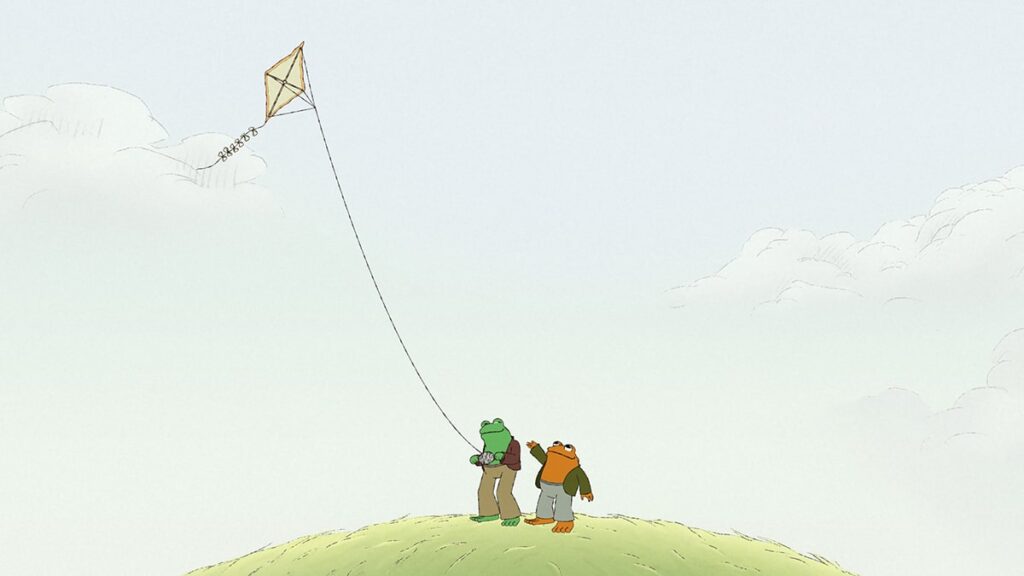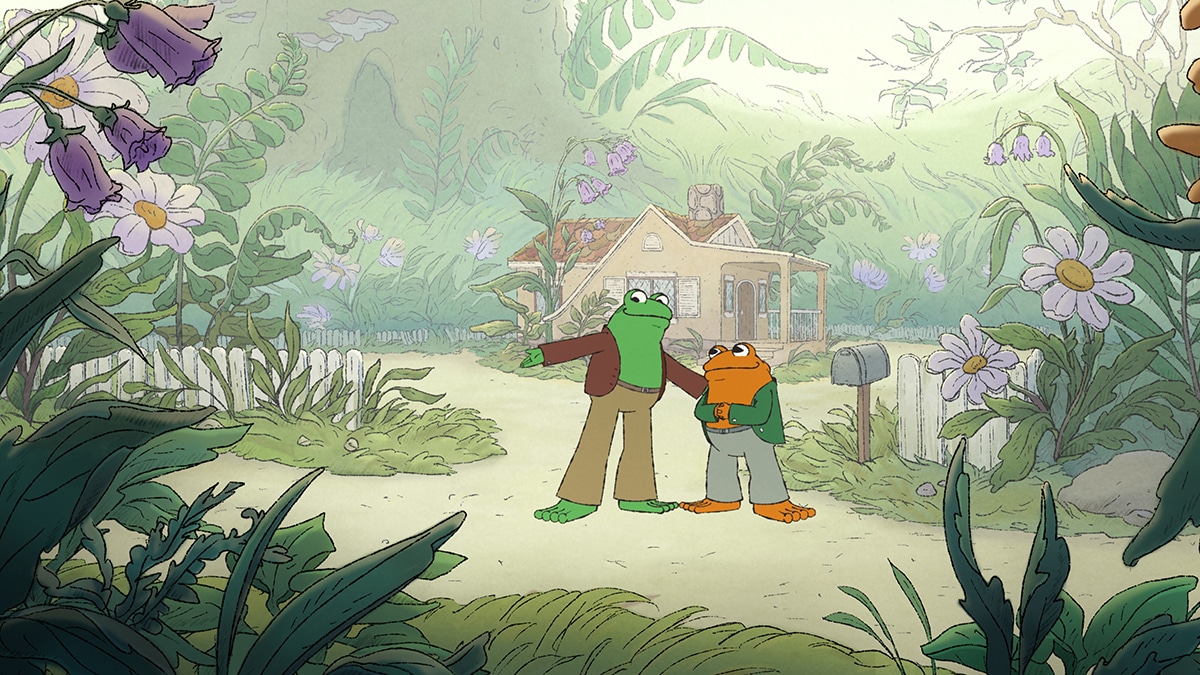The Frog and Toad book series written and illustrated by Arnold Lobel was one of the major reasons that I fell in love with reading. As a child, I speedily advanced through small-print chapter books like Percy Jackson and The Chronicles of Narnia. But in the end, I always came back to these books for easy readers about two amphibian friends, flying kites and growing gardens in the woods, among other wholesome adventures.
Originally published in the 70s, the four-book series has since remained a hallmark of children’s literature for its warmth, humor, and heart. It’s even been adapted into two claymation films and a Broadway musical. But nothing could’ve prepared me for AppleTV+’s animated series based, much less their Christmas special. Throughout watching the show’s nine episodes, I saw one of my favorite book series beautifully come to life and, in doing so, felt healed, comforted, and seen in my queerness.
It’s worth noting that in the books, Frog and Toad, who are of the same sex, are never explicitly said to be gay or queer, going so far as to live in different houses. But you don’t have to look hard to see the subtext of their relationship or how they are intentionally queer-coded–how often they tell each other they love each other and how open they are with their feelings in general. We do see them go on picnics together, hug and hold each other, wear matching sweaters on Christmas Eve, cook for each other, and how they dress, which incidentally contributed to this year’s cottagecore trend.
Yes, men who are just friends do these things as well. But as much as Frog and Toad share a friendship, their relationship is just as much rooted in tremendous respect, companionship, and partnership. In the undercurrent of everything they do together, there is a softness and love that just can’t be explained as platonic. Besides, if the basis of a romantic relationship is not friendship, then what is? What are you even doing if your partner is not your best friend?
There’s also the fact that Lobel’s daughter herself has stated in recent years that writing these books helped her father come to terms with his sexuality and come out to their family. Today Frog and Toad have found newfound fame in the LGBTQIA+ community in the same league as fictional characters like Kermit the Frog or Bert and Ernie.
While “struggle stories” are important, I’m tired of seeing our trauma being the only aspect of our community that is validated in award shows and celebrated in the mainstream. What about what happens after we come out and leave behind our toxic families? After we find the people who help us embrace who we are? After we fall in love? Frankly, we more than deserve to watch a show about a gay frog and toad couple going to the beach to sunbathe and eat ice cream, whose only problem is that they burned Christmas rolls in the oven.
Frog and Toad’s gentle lives brought to my attention a wound, a need to heal that I didn’t even know I had. Watching Frog help Toad grow a garden or write Toad a letter to cheer him up gave me this sudden urge to cry. I would see the two of them handing out cookies to all their friends in the woods and laugh (literally out loud, several times, every episode) at the hilarity of it all — how simple yet important a life can be.

It helped that I watched it with my partner. Together, we saw pieces of ourselves reflected in Frog and Toad’s respective personalities, further affirming my connection to the material. It was easy to curl up in bed and revel in the purity and fun of their world, replicating what I did as a child but in a different medium and with more experience and self-love.
At the same time, I grew to also see the show’s forest setting as a place of radical queer joy and collective liberation. Frog and Toad offered me not only an escape but also encouraged me to fight for safety in my own life.
Growing up, I never had shows like this. I never saw that being queer could be beautiful, never understood that queer people could be free. Especially when more anti-LGBTQIA+ bills than ever are being passed in this country, queer kids need to be affirmed in all aspects of their identity, starting with the media they consume. Besides the fact that there is less well-made content for children in general, LGBTQIA+ representation in kid’s media is an uphill battle thanks to increased fearmongering, social and political resistance.
Frog and Toad reminded me that queer shows like this are important. Our stories are important. While there’s been no word on whether the series will continue, I hope its creators will advocate for its continuation. Because despite the brutality of the world and the violence we face, Frog and Toad has, more than anything, given me the hope that another reality for queer people is possible and the certainty that it’s worth fighting for.

